2022 APUSH Exam Guide
11 min read•december 3, 2021
AP US History 🇺🇸
454 resourcesYour guide to the 2022 AP US History exam
Format of the 2022 AP US History exam
- Multiple Choice Section - 40% of your score
- 55 questions in 55 minutes
- Short Answer Section - 20% of your score
- 3 questions in 40 minutes
- Free-Response Section - 40% of your score
- 2 questions in 1 hour and 40 minutes
- Document-Based Question | 1 hour | 25% of your score
- Long Essay | 40 minutes | 15% of your score
Scoring Rubric for the 2022 AP US History exam
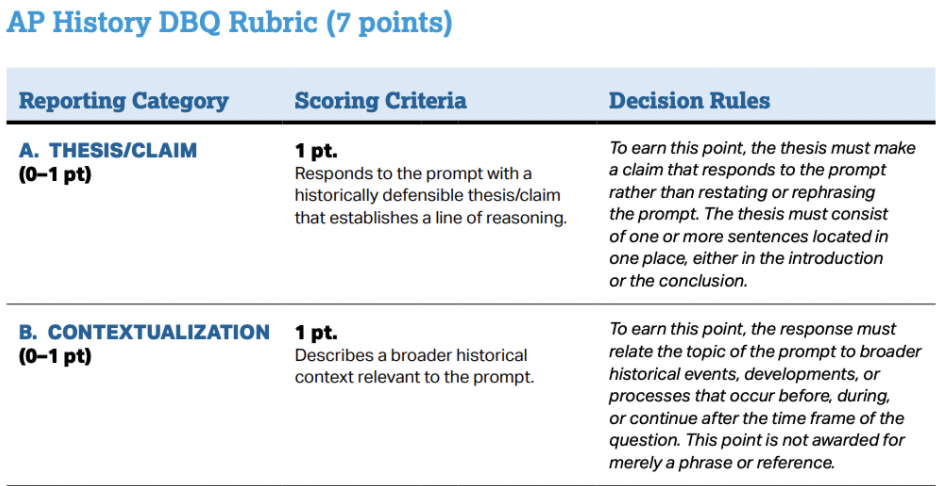
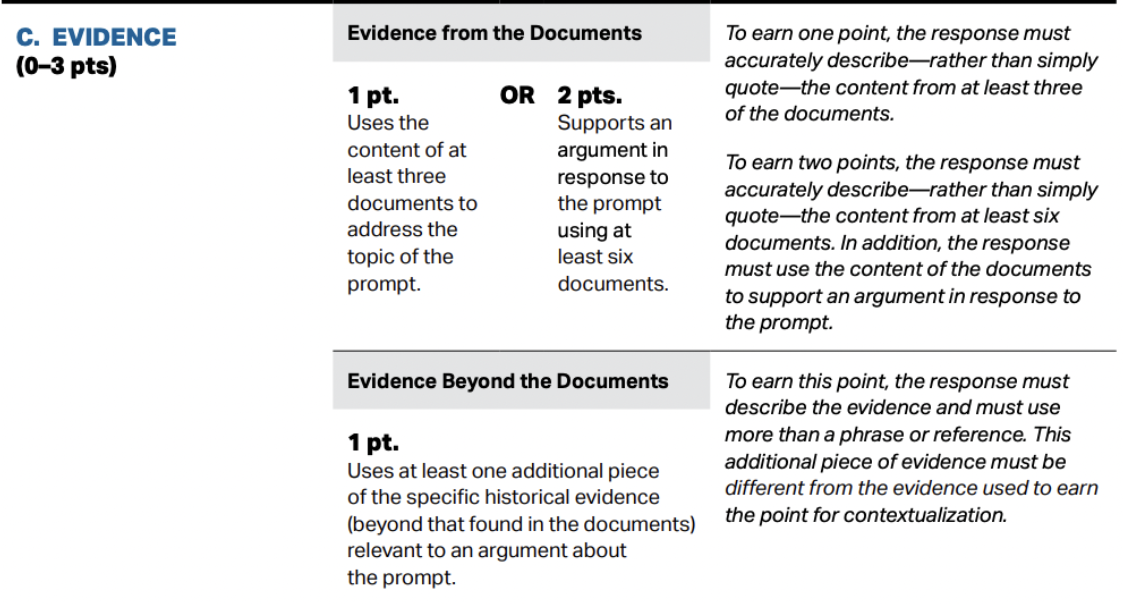
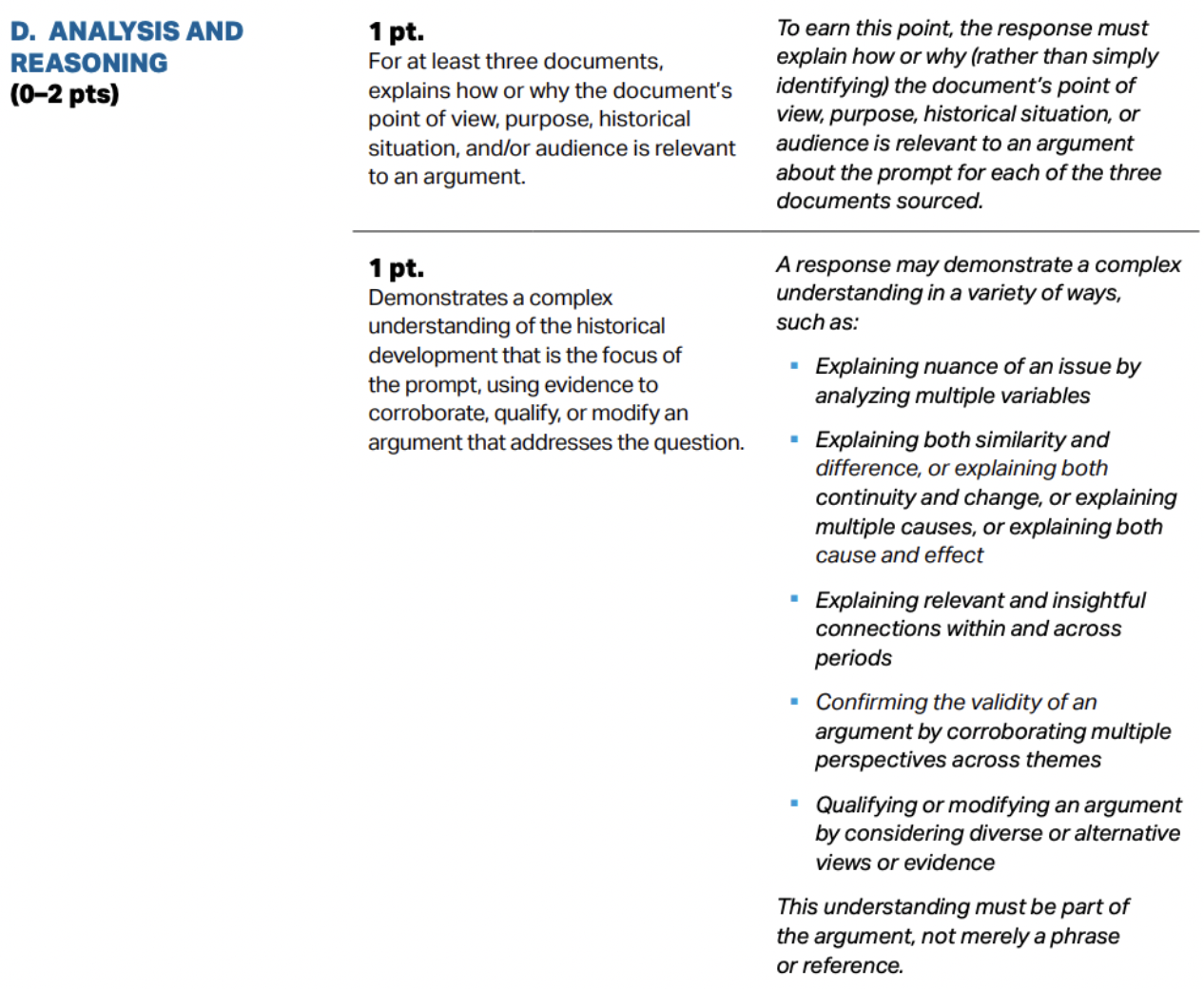
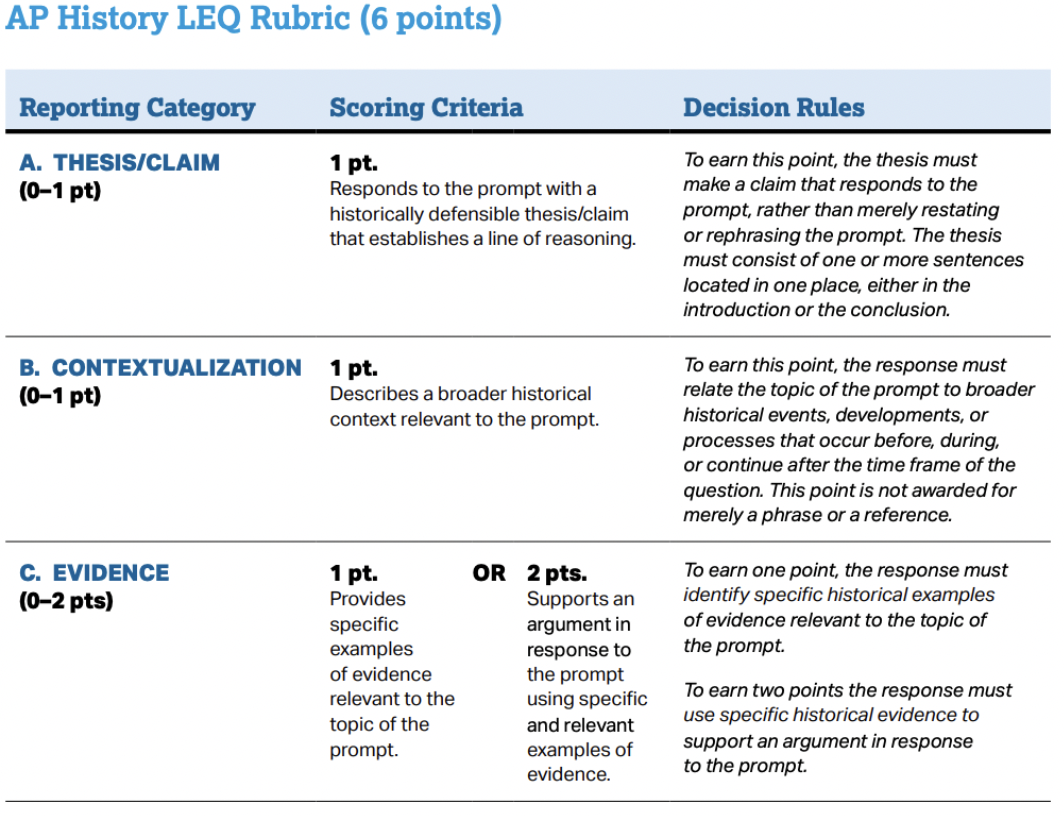
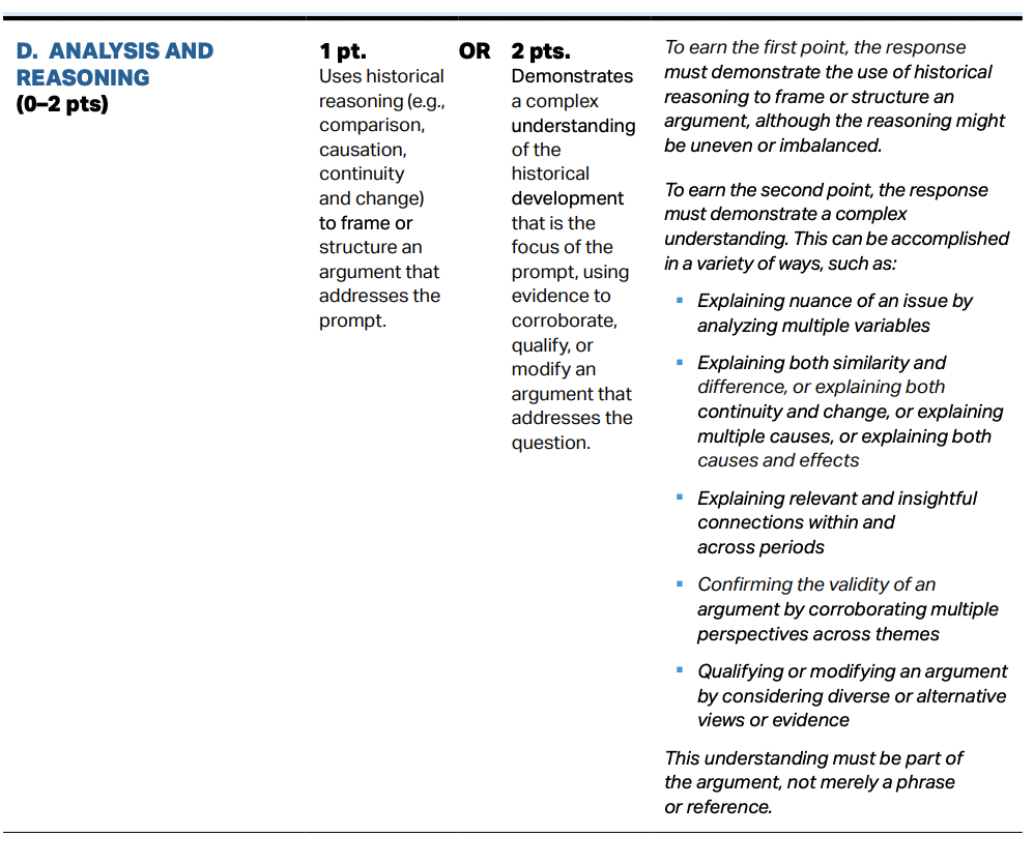
When is the 2022 AP US History exam and how do I take it?
How should I prepare for the APUSH exam?
- First, download the AP US History Cram Chart PDF - a single sheet that covers everything you need to know at a high level. Take note of your strengths and weaknesses!
- Review every unit and question type, and focus on the areas that need the most improvement. We’ve put together this plan to help you study between now and May. This will cover all of the units and essay types to prepare you for your exam.
- Additionally, create your schedule ahead of time so that you can connect with other students instead of just studying alone! Join Hours 🤝to talk to real students just like you studying for this exam. We have TAs in each subject channel to support you this Spring and tons of free events and pep talks.
- Finally, check out our 13 Cram replays so that you can review for the APUSH exam with a rockstar teacher and study socially among other students.
Pre-work: set up your study environment
AP US History 2022 Study Plan🌽
UNIT 1: Period 1, 1491-1607
Big takeaways:
Definitely do this:
- Unit 1 Full Review: A full review of the main concepts, plus practice questions
- Interactions Between Native Americans and Europeans: A deeper dive into interactions during Period 1
- Cultural Interactions Between Europeans, Native Americans, & Africans
- Labor, Slavery, and Caste in the Spanish Colonial System
- Columbian Exchange, Spanish Exploration, & Spanish Conquest
If you have more time or want to dig deeper:
- The Columbian Exchange (Gilder Lehrman APUSH Review)
- How the Humble Potato Changed the World (BBC)
- The Columbian Exchange Should Be Called the Columbian Extraction (JSTOR)
- The Americas to 1620 (Gilder Lehrman APUSH Review)
🦃 UNIT 2: Period 2, 1607-1754
Big takeaways:
Definitely do this:
- Unit 2 Full Review: A full review of the main concepts
- Colony Comparison: A deeper dive into the different British North American colonies during unit 2
- The Impact of African Slavery on the Colonies: A deeper dive into coercive labor systems in unit 2
If you have more time or want to dig deeper:
- Jamestown and the Founding of English America (Gilder Lehrman APUSH Review)
- The Puritans and Dissent: The Cases of Roger Williams and Anne Hutchinson (Gilder Lehrman APUSH Review)
- The Origins of Slavery (Gilder Lehrman APUSH Review)
🇺🇸 UNIT 3: Period 3, 1754-1800
Big takeaways:
Definitely do this:
- Unit 3 Full Review: A full review of the main concepts
- Key Documents and Foundations of the American Revolution: Review the American revolution and practice your HIPP analysis for the DBQ
- Historical Thinking Skills in Period 3: Review using the skills the exam tests
- The American Revolution
If you have more time or want to dig deeper:
- Movement in the Early Republic (Fiveable Study Guide)
- The American Revolution, 1763–1783 (Gilder Lehrman APUSH Review)
- The New Nation, 1783–1815 (Gilder Lehrman APUSH Review)
- The Legal Status of Women, 1776–1830 (Gilder Lehrman APUSH Review)
- Unruly Americans in the Revolution (Gilder Lehrman APUSH Review)
- Developing an American Identity (Fiveable Study Guide)
🚂 UNIT 4: Period 4, 1800-1848
Big takeaways:
Definitely do this:
- The Rise of Political Parties
- The Market Revolution
- The First & Second Great Awakenings & Antebellum Reform Movements
- Manifest Destiny and Its Impacts
If you have more time or want to dig deeper:
- Jackson and Federal Power (Fiveable Study Guide)
- The South in the Early Republic (Fiveable Study Guide)
- Context: Development of the Republic (Fiveable Study Guide)
- The New Nation, 1783–1815 (Gilder Lehrman APUSH Review)
- National Expansion and Reform, 1815–1860 (Gilder Lehrman APUSH Review)
- The First Age of Reform (Gilder Lehrman APUSH Review)
- Abolition and Antebellum Reform (Gilder Lehrman APUSH Review)
- The Seneca Falls Convention (Gilder Lehrman APUSH Review)
- Causation in Period 4 (Fiveable Study Guide)
💣 UNIT 5: Period 5, 1844-1877
Big takeaways:
Definitely do this:
- Sectional Conflict: Regional Differences
- The Compromise of 1850
- The Failure of Compromise
- Reconstruction
If you have more time or want to dig deeper:
- Context: Sectional Conflict (Fiveable Study Guide)
- The 1860 Election & Secession (Fiveable Study Guide)
- Civil War and Reconstruction, 1861-1877 (Gilder Lehrman APUSH Review)
- The Contentious Election of 1876 (Gilder Lehrman APUSH Review)
- Government Policies During the Civil War (Fiveable Study Guide)
💰 UNIT 6: Period 6, 1865-1898
Big takeaways:
Definitely do this:
- Review of Period 6: A complete review of all the major concepts
- The Rise of Industrialization & City Life during the Gilded Age
If you have more time or want to dig deeper:
- Responses to Immigration (Fiveable Study Guide)
- The Rise of Industrial America, 1877-1900 (Gilder Lehrman APUSH Review)
- The Gilded Age (Gilder Lehrman APUSH Review)
- Immigration & Migration (Gilder Lehrman APUSH Review)
- Born Modern: An Overview of the West (Gilder Lehrman APUSH Review)
- Politics in the Gilded Age (Fiveable Study Guide)
🌎 UNIT 7: Period 7, 1890-1945
Big takeaways:
Definitely do this:
- Early 20th Century Progressive Era & World War One
- 1920s & 1930s: An Overview
- The Great Depression & New Deal
If you have more time or want to dig deeper:
- Context: America in the World (Fiveable Study Guide)
- 1920s Innovations (Fiveable Study Guide)
- Postwar Diplomacy (Fiveable Study Guide)
- The Politics of Reform: An Overview of the Progressives (Gilder Lehrman APUSH Review)
- World War I (Gilder Lehrman APUSH Review)
- The Roaring Twenties (Gilder Lehrman APUSH Review)
- The Great Depression (Gilder Lehrman APUSH Review)
- The New Deal (Gilder Lehrman APUSH Review)
- World War II (Gilder Lehrman APUSH Review)
- The World War II Homefront (Gilder Lehrman APUSH Review)
- Interwar Foreign Policy (Fiveable Study Guide)
🥶 UNIT 8: Period 8, 1945-1980
Big takeaways:
Definitely do this:
- The Cold War
- Review of Major Events in the 1960s
- Review of Major Events in the 1970s
- Introduction to the Civil Rights Movement
- More details about the Civil Rights Movement
- The Vietnam War
- Cold War
- The Red Scare
- The Vietnam War
- Culture and Economy After 1945
- The Civil Rights Movement
- Environment and Natural Resources
- The Transition of Society
- The Great Society
If you have more time or want to dig deeper:
- Contextualizing Period 8 (Fiveable Study Guide)
- The Civil Rights Movement (Gilder Lehrman APUSH Review)
- The Korean War (Gilder Lehrman APUSH Review)
- The Vietnam War (Gilder Lehrman APUSH Review)
- Anti-Communism & the Red Scare (Gilder Lehrman APUSH Review)
- Continuity & Change of Period 8 (Fiveable Study Guide)
📲 UNIT 9: Period 9, 1980-Present
Big takeaways:
Definitely do this:
- Reagan and Conservatism
- End of the Cold War
- The Changing Economy
- Migration and Immigration
- Challenges of the 21st Century
If you have more time or want to dig deeper:
- Unit 9 Contextualization (Fiveable Study Guide)
- Barack Obama and Future of the Country (Gilder Lehrman APUSH Review)
- 9/11 (Gilder Lehrman APUSH Review)
- 1945 to the Present Day (Gilder Lehrman APUSH Review)
- Causation in Unit 9 (Fiveable Study Guide)
- Your guide to the 2022 AP US History exam
- Format of the 2022 AP US History exam
- Scoring Rubric for the 2022 AP US History exam
- When is the 2022 AP US History exam and how do I take it?
- How should I prepare for the APUSH exam?
- Pre-work: set up your study environment
- AP US History 2022 Study Plan🌽
- UNIT 1: Period 1, 1491-1607
- 🦃 UNIT 2: Period 2, 1607-1754
- 🇺🇸 UNIT 3: Period 3, 1754-1800
- 🚂 UNIT 4: Period 4, 1800-1848
- 💣 UNIT 5: Period 5, 1844-1877
- 💰 UNIT 6: Period 6, 1865-1898
- 🌎 UNIT 7: Period 7, 1890-1945
- 🥶 UNIT 8: Period 8, 1945-1980
- 📲 UNIT 9: Period 9, 1980-Present

Fiveable
Resources
© 2023 Fiveable Inc. All rights reserved.